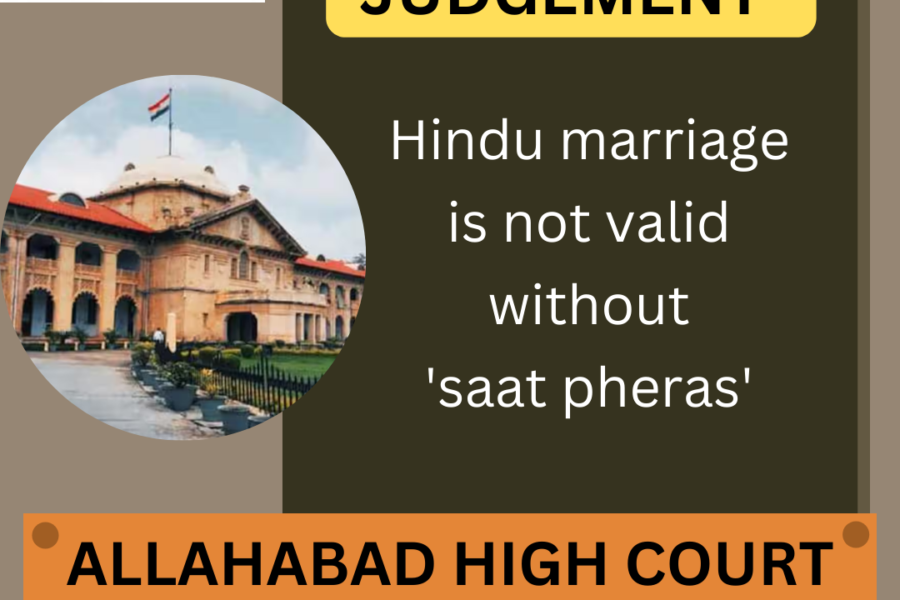Smriti Singh & Ors v. State & Ors
The Allahabad High Court said in a recent ruling that the Hindu Marriage Act, 1955 acknowledges Saptapadi (saat phere) as an essential element for the approval of a Hindu marriage, even though it dismissed a bigamy case against a woman.
“Where marriage is disputed, it is not enough to find that marriage took place, leaving it to be presumed that the rites and ceremonies necessary to constitute a legal marriage were performed. In the absence of cogent evidence in this regard, it is difficult to hold that the ‘Saptapadi ceremony’ of the marriage as contended by the complainant was performed so as to constitute a valid marriage between the parties concerned,” observed a single judge bench of Justice Sanjay Kumar Singh.
During the Hindu wedding ceremony, the bride and groom take seven symbolic strides around the sacred fire, known as Saptapadi.
The marriage in 2017 served as the catalyst for the divorce. Soon after getting married, the applicant-wife accused her in-laws and husband of harassing her for the dowry and filed a First Information Report (FIR).
But things took a turn in 2021 when the husband filed a complaint, claiming his wife had been married again before they had divorced.
Following the issuing of a summons by a magistrate court, the applicant-wife petitioned the High Court for relief, requesting that the summons and the complaint case’s proceedings be quashed.
Even though the wife denied the husband’s accusations, he claimed to have strong proof in front of the high court to back up her supposed remarriage.
He had sent a picture of the woman from her purported second marriage.
However, after carefully examining all of the material that was provided, the high court came to the conclusion that there was insufficient evidence to support the claim that the required rituals for the alleged second marriage had been completed.
Regarding the purported photo, this court believes that it is insufficient evidence of marriage, particularly in cases where the facts are not proven on file in compliance with the Evidence Act.
The court stated:
“It is well settled that the word’solemnize’ means, in connection with a marriage, ‘to celebrate the marriage with proper ceremonies and in due form’. Unless the marriage is celebrated or performed with proper ceremonies and due form, it cannot be said to be solemnized. If the marriage is not a valid marriage, according to the law applicable to the parties, it is not a marriage in the eyes of the law.”.
The court further stated that it is widely established that a second marriage must have been held with appropriate ceremonies and in accordance with the law in order for it to be considered an infraction under Section 494 I.P.C.
Therefore, the court annulled the summoning order and continued the complaint case against the woman, pointing out that, according to Hindu law, the “Saptapadi” ceremony is one of the necessary components of a lawful marriage, but the abovementioned evidence was absent in the present case.
Adv. Khanak Sharma

